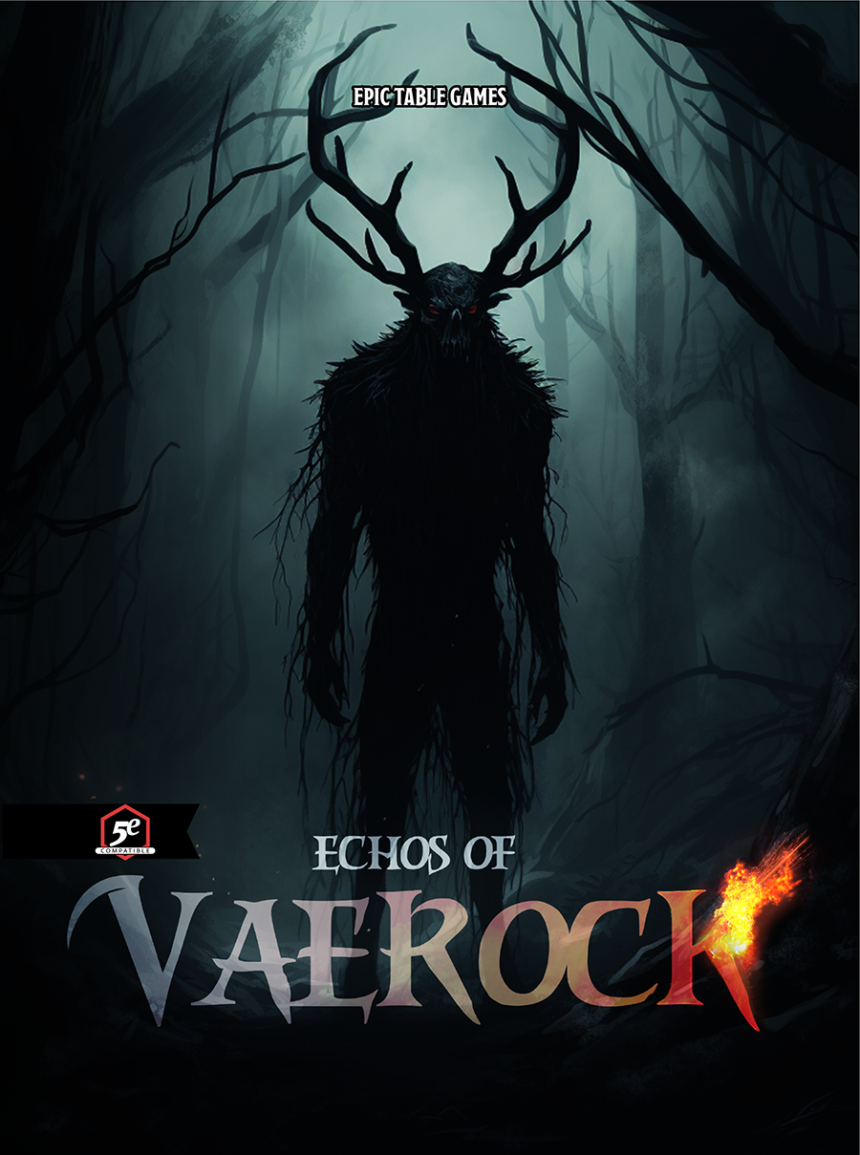In the enchanting world of Dungeons & Dragons, magic has always played a pivotal role. Traditionally, spellcasting in the game is governed by a system known as Vancian Magic, where spellcasters rely on spell slots, spell levels, and the need to prepare spells in advance. However, D&D 5th Edition introduced a fascinating concept called “ritual spells,” which allowed for the casting of certain spells without the need for spell slots, albeit at a significantly extended casting time. But what if you’re looking for something even more unique and immersive? Enter the Arcane Rites system, a groundbreaking supplement that takes spellcasting to a whole new level.
The Limitations of Vancian Magic:
Vancian Magic, the traditional system of spellcasting in Dungeons & Dragons, is a well-established and widely-used method. It revolves around the concept of spell slots, spell levels, and the need for spellcasters to prepare their spells ahead of time. This system, while effective and iconic, can be limiting in several ways. Spellcasters must carefully manage their spell slots, and once they’re expended, the caster is unable to cast more spells until they rest and recover. While this system has its merits, it may not always align with the narrative or gameplay preferences of every player.
D&D 5th Edition introduced a fascinating twist to Vancian Magic through the “ritual” tag. This allowed players to cast certain spells without using their spell slots but at the cost of significantly increased casting time. Ritual spells are particularly appealing because they offer more flexibility and versatility to spellcasters, enabling them to cast utility spells when needed, without exhausting their limited resources, but limits their ability to cast ritual spells at higher levels.
Enter the Arcane Rites System:
The Arcane Rites system is a game-changer, taking the concept of ritual casting to the next level. Unlike Vancian Magic, it doesn’t rely on spell slots or spell levels. Instead, Arcane Rites are accessible to every class, breaking the traditional class-based limitations associated with spellcasting.
Arcane Rites are performed by making a series of skill checks, which is a departure from the usual Vancian spellcasting approach. These skill checks are pivotal in determining the success or failure of the ritual. The degree of success or failure plays a crucial role in determining the consequences of the ritual. This unique system adds a layer of complexity and strategy to the game, making it a captivating and immersive experience.
Benefits of Arcane Rites:
- Universal Accessibility: Unlike traditional spellcasting, Arcane Rites are available to every class, ensuring that every character can harness the power of magic.
- Skill-Based Casting: The need for skill checks in Arcane Rites means that characters can improve their magical abilities through training and practice, offering a sense of character progression and development.
- Narrative Versatility: The flexibility of Arcane Rites makes it easier to incorporate magical elements into your D&D adventures without being bound by the traditional spellcasting rules.
- Consequences of Failure: One of the most intriguing aspects of the Arcane Rites system is the range of potential consequences for failed rituals. The degree of failure determines the severity of these consequences, adding an element of risk and suspense to magical endeavors. This system encourages players to think carefully before attempting a ritual and adds an exciting element of unpredictability to the game.
Skill Checks Over Spell Levels: In the Arcane Rites system, the power and effectiveness of a ritual are not determined by traditional spell levels. Instead, it’s the difficulty of the individual skill checks that gauges the ritual’s power level. This shift in focus from predefined spell levels to skill-based checks adds a dynamic element to the system. The complexity and skill required for a particular ritual can vary, making magic more versatile and unpredictable. And, by unlocking the ability to perform arcane rites, any player can attempt these ritual spells so long as they have the components and pass each skill check DC. Fun side note is that not every spell uses the same skill checks. We tried to be very liberal in what skill checks should be used, while Religion and Arcana do come up a lot we also include survival, slight of hand, nature, intimidation, and more.
The Element of Surprise: A significant departure from traditional magic systems is the idea that, in most ritual magic, the target is often unaware of being the target. This concept adds a layer of intrigue to the system, creating the potential for rituals to appear overpowered by design. After all, unless you actively defend against ritual magic, you can unknowingly become the target. This element not only keeps players on their toes but also reintroduces the sense of paranoia and superstition associated with unknown magics. We did include a few magic items and counter rituals that help defend against them (such as a lucky rabbits foot).
Degrees of Failure: The failure system in Arcane Rites operates on a spectrum of degrees of failure, which adds depth and nuance to the consequences of mishaps during rituals. The outcome is not a simple binary success or failure. Instead, the degree of failure plays a pivotal role. Failing by a margin of less than 5 might result in a minor disturbance or hindrance. However, if the failure exceeds 20 or more, the consequences can be catastrophic, unleashing chaos and unpredictability resulting in summoning raw elemental forces or dealing great amounts of damage from “mana overload” or “reversals.”
One common question that arises when discussing the Arcane Rites system is how it differs from the “Ritual Caster” feat in Dungeons & Dragons. The key distinction lies in the inherent accessibility and versatility of the Arcane Rites system, eliminating the need for players to invest in a specific feat to perform ritual magic.
- No Feat Requirement: Unlike the “Ritual Caster” feat, which requires a character to expend one of their limited feat choices, the Arcane Rites system allows every character, regardless of class or level, to engage in ritual magic. This inclusion adds a layer of inclusivity to the game, enabling players to explore ritual magic without sacrificing character customization.
- Variety and Power: Perhaps the most intriguing aspect of the Arcane Rites system is its treatment of spells. In this system, every spell in the book becomes a potential ritual magic, each varying in power and complexity. This means that a first-level character could potentially attempt a high-level ritual like the “Phylactery of the Damned.” The success or failure of the skill checks involved determines the outcome, allowing for a wide range of narrative possibilities, from the extraordinary to the catastrophic.
While it’s true that a first-level character might embark on the path to becoming a lich, the chances of successfully completing such a ritual are slim. The Arcane Rites system introduces risk and uncertainty, making the journey toward such a powerful transformation both daring and unpredictable. The possibility of success or failure adds an element of excitement and tension to the gameplay, making each ritual an adventure in itself.
One of the most profound departures from traditional magic systems in the Arcane Rites supplement is the absence of class-based restrictions. In many RPG systems, spellcasting abilities are closely tied to a character’s class, such as wizard, sorcerer, or cleric. However, the Arcane Rites system introduces a groundbreaking concept: classless magic.
In the Arcane Rites system, each ritual is attributed to a spell school, as seen in traditional D&D, but none of the rites are tied to specific spellcaster class lists. This means that characters are not confined to a particular class or class abilities when performing these rituals. The implications of this change are significant:
Universal Accessibility: Arcane Rites make the magic of various spell schools accessible to all characters, irrespective of their class. This breaks down the traditional boundaries between classes and opens up a world of possibilities for character development and role-playing.
Versatile Application: While the spell schools provide a thematic framework for the Arcane Rites, the system allows for a wide range of creative applications. For example, the Evocation school, traditionally associated with raw destructive energy, can be harnessed in unique ways within the Arcane Rites system. Instead of immediate destruction, a ritual might channel this energy into an object, allowing for its delayed use. This flexibility encourages players to think outside the box and experiment with different magical effects.
Narrative Freedom: The removal of class restrictions empowers players and Dungeon Masters to craft narratives that are not limited by the conventional roles of spellcasting classes. Characters can evolve in ways that are more aligned with their personal stories, rather than adhering to class-based archetypes.
The inclusion of themes from the occult, eldritch horrors, and real-world spell books in the Arcane Rites system adds a layer of mystique and depth to the world of magic in Dungeons & Dragons. This infusion of the occult not only provides a rich tapestry of inspiration but also brings unique and intriguing elements to the gameplay.
- Eldritch and Elemental Influences: The connection between the Arcane Rites and eldritch or elemental horrors resulting from pacts with demons or devils enriches the game with a sense of the arcane and the sinister. By drawing on these themes, the system introduces a darker and more mysterious aspect of magic, inviting players to explore the supernatural and confront the unknown.
- Real-World Occult Sources: Incorporating real-world spell books like “Moon Spells,” “The Grimoire Verum,” and “The Big Book of Spells” into the Arcane Rites system deepens the authenticity and immersion. Players can feel a connection to actual historical and esoteric practices, which can make the magic in the game feel more tangible and captivating.
- Philosophy and Akashic Magics: While the idea of philosophy and akashic magics is tempting, the decision to keep the focus on the ritual castings was a thoughtful choice. By concentrating on the core concept of rituals, the Arcane Rites system maintains clarity and distinctiveness while still offering room for thematic exploration.
Incorporating these occult elements not only enhances the complexity and depth of the magical system but also encourages players to explore the mystical, the enigmatic, and the otherworldly. The Arcane Rites system invites players to delve into the esoteric and embark on a journey where the lines between reality and the supernatural blur. It’s a captivating addition that immerses players in a world where the arcane and the mysterious hold sway, and the possibilities of magic are as boundless as the human imagination.





